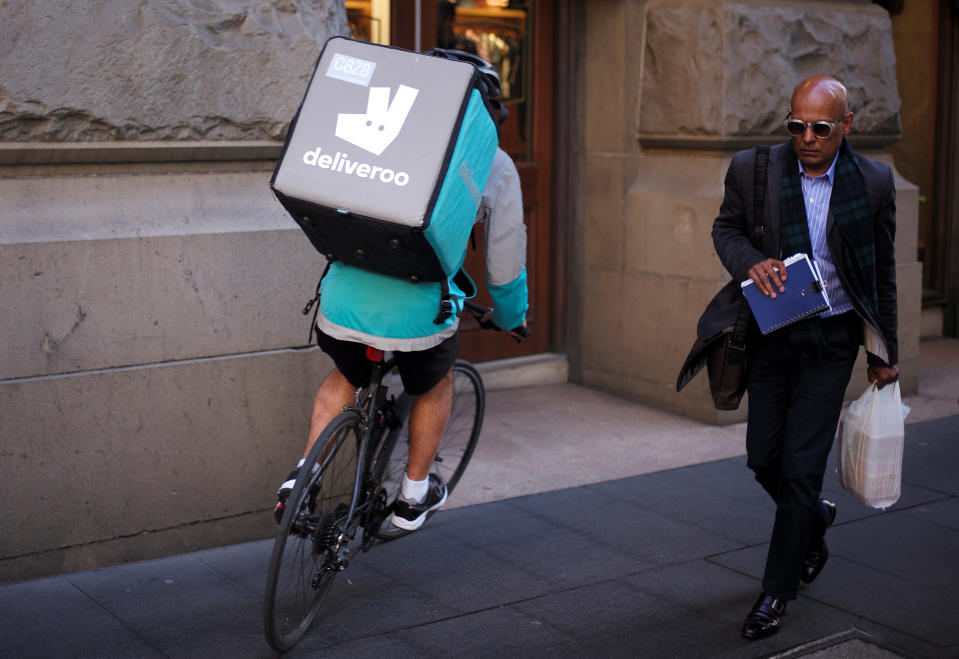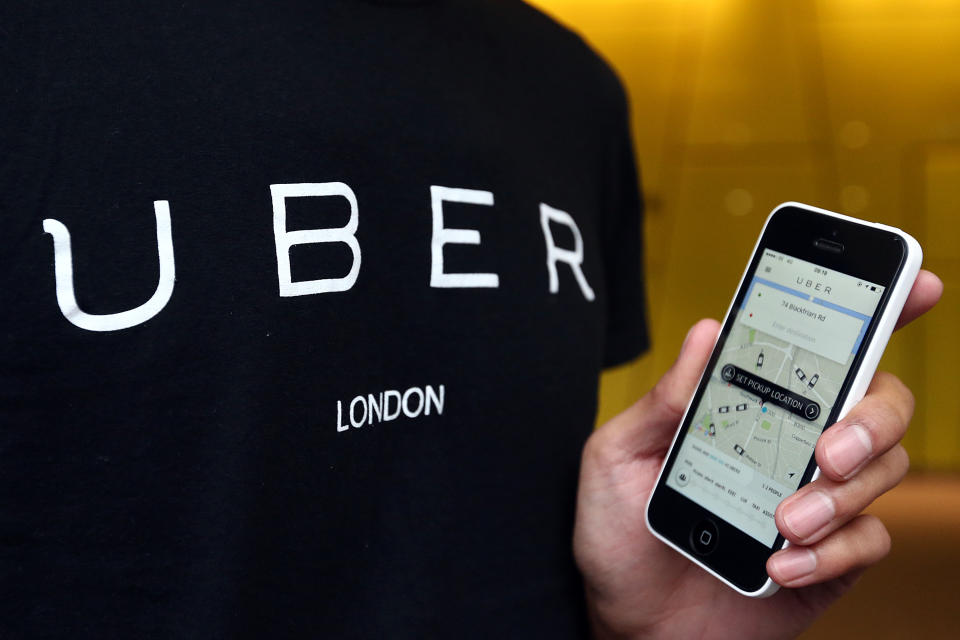Gig economy shake-up will see a new definition of 'worker'

Ministers want to redefine exactly what a “worker” is after the growth of the gig economy.
With an estimated 5 million people employed in some form or another in this area, the government believes too many have seen their basic working rights eroded or abused.
It has announced a series of consultations on what constitutes a genuine self-employed worker, what is a genuine contractor and what is a fully employed worker.
MORE: Blow to gig economy workers after Deliveroo holiday pay ruling
There will also be a consultation surrounding agency workers where, often, employers use these workers to carry out the same roles, duties and hours as full-time workers but at much reduced rates.

What’s the background?
Today’s announcements follow the Taylor Review into the gig economy, which set out a series of proposals to give people in the gig economy more rights to such things as sick pay, holiday pay and other basic working fundamentals.
His basic conclusion was that all work should be properly rewarded and that gig workers should get the same rights as full-time workers.
The gig economy sees companies to hire freelancers instead of full-time employees, with people being paid for each “gig” they do.
It’s been particularly successful for firms such as Deliveroo, Uber, parcel delivery companies but also used by the likes of Sports Direct for its warehouse staff.
MORE: Uber contracts branded ‘gibberish’ as MPs condemn working practices in gig economy
While most employers say their gig workers enjoy the freedom to work when they want, others have been criticised for abusing the relationship, by cancelling shifts at short notice, or docking or fining workers for missing gigs for hospital appointments, for example.
There’s also the question of taxes; gig workers who operate as limited companies tend to pay less tax – something HMRC is acutely aware of.

How has the government responded?
It says workers should from “day one” get rights to such things as sick pay and holidays, as well as new right to a pay slip.
Gig workers will also be given the right to seek more stable, formal contracts and hours.
Some 1.2 million agency workers will be entitled to a breakdown of who pays them and any costs deducted from their wages, while the Low Pay Commission will be asked to consider higher minimum wage rates for those on zero hour contracts.
Laws allowing agencies to employ workers on cheaper rates could also be repealed, while some employment tribunal fines against employers will be quadrupled to £20,000.
Further (unspecified) action will be taken to ensure unpaid interns are not doing the job of a worker.

What does the business secretary say?:
Greg Clark said the consultations would seek to clarify and redefine what constitutes a worker, someone who is self-employed, who is a sub-contractor – and determine which rights and tax obligations apply to them.
Case law is currently used to define a worker – and that leads to confusion. For example, employment tribunals have ruled that Uber drivers are now considered to be workers, so they are entitled to these benefits. Yet Deliveroo riders are still classified as self-employed and that means they’re not eligible.
MORE: How companies are exploiting ‘sham’ self-employment to cut their tax bill
“There needs to be a much clearer definition of who is an ‘employee’, a contracted worker and who is self-employed,” said Clark.
“We need to have clear definitions from day one, rather than discerning from case law.
“Anyone who is performing work, should be clear on what their position is, if they are a contractor then they are entitled to sick pay, if they are self employed then their contractual terms should not be so onerous they should not be abusive or unreasonable.”
And how have unions reacted?
While the TUC has welcomed moves on sick pay and holiday pay, general secretary Frances O’Grady said: “The government has taken a baby step – when it needed to take a giant leap.”
She said there was nothing in the announcement to stop the “hire and fire” culture where employers can dump workers with little or no notice – and no comeback.
Indeed, while casual workers will be given the right to request a “proper” contract, with more formal hours, there is nothing to stop employers simply turning round and saying “no”.
Workers will still be left in a position where they will have to carry on as is or walk away and find something else to do. The balance of power has not fundamentally shifted.
“The proposals outlined today won’t stop that hire-and-fire culture of zero-hours contracts and sham self-employment,” said O’Grady.
“And they’ll still leave 1.8 million people in insecure jobs excluded from key workplace protections.”

 Yahoo Finance
Yahoo Finance 
